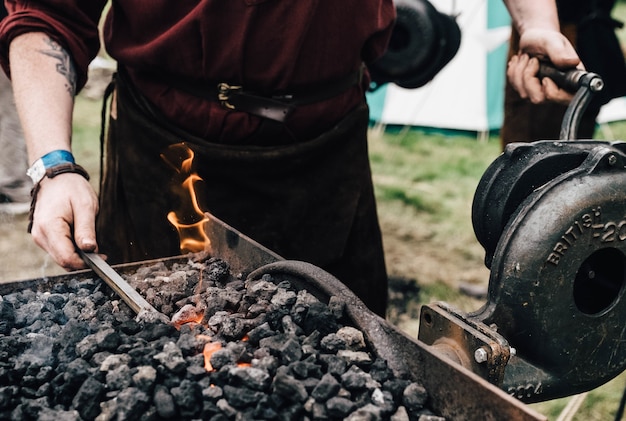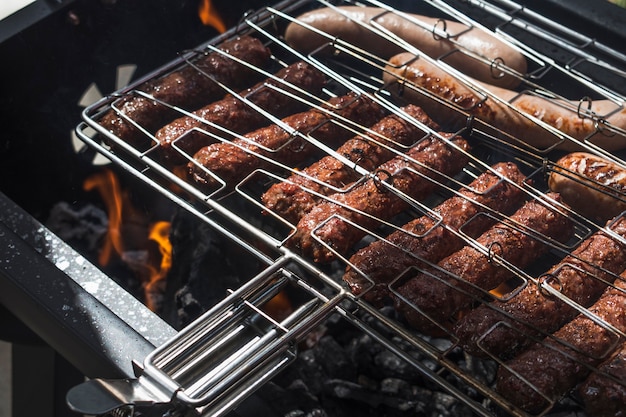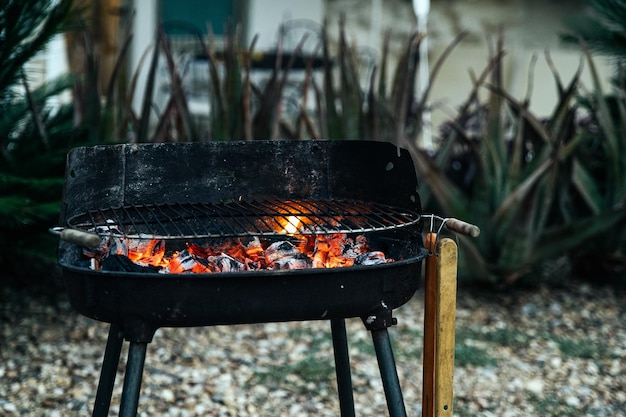How do I choose a charcoal grill?
Introduction
Choosing the right charcoal grill can greatly enhance your outdoor cooking experience. With a variety of options available in the market, it can be overwhelming to find the perfect grill that suits your needs and preferences. Whether you are a beginner or an experienced griller, this guide will help you navigate through the process of choosing a charcoal grill that will make your barbecues and outdoor gatherings truly memorable.
Consider Your Cooking Style
One of the first factors to consider when choosing a charcoal grill is your cooking style. Are you someone who enjoys slow-cooking meats, or do you prefer grilling burgers and hotdogs quickly? The size and design of the charcoal grill play a crucial role in determining the cooking style it caters to. For example, kettle grills are versatile and suitable for both direct and indirect grilling, while kamado-style grills are known for their excellent heat retention and are ideal for smoking and slow-cooking.
Size and Portability
The size of the charcoal grill is another important consideration. If you have a small outdoor space or plan to take your grill on camping trips or picnics, a portable and compact grill would be a suitable choice. On the other hand, if you frequently host large gatherings or have ample space in your backyard, a larger grill with more cooking surface area might be a better fit. Consider the number of people you usually cook for and the available storage space before finalizing the size of your charcoal grill.
Durability and Construction
Investing in a durable charcoal grill is essential to ensure longevity and value for money. Look for grills made from high-quality materials such as stainless steel or cast iron, which are known for their sturdiness and resistance to rust. Pay attention to the construction and craftsmanship, as a well-built grill will not only withstand high temperatures but also provide even heat distribution for consistent cooking.
Temperature Control
Achieving precise temperature control is crucial for successful grilling. Look for grills that offer adjustable air vents or dampers, which allow you to regulate the airflow and control the heat. This feature is particularly important for charcoal grills as it enables you to create both high-heat searing zones and low-heat smoking zones. Additionally, grills with built-in thermometers can help you monitor the internal temperature without the need for additional gadgets.
Budget and Additional Features
Consider your budget when choosing a charcoal grill, as prices can vary significantly depending on the brand, size, and features. Determine your priorities and decide which additional features are important to you. Some popular features include side shelves for food preparation, ash collection systems for easy cleaning, and charcoal baskets for indirect cooking. Prioritize the features that align with your cooking style and budget accordingly.
In the end, finding the perfect charcoal grill requires careful consideration of your cooking style, size requirements, durability, temperature control, and budget. With the right grill by your side, you can elevate your outdoor cooking experience and create delicious meals for family and friends.
To summarize, choosing a charcoal grill involves evaluating factors such as cooking style, size, construction, temperature control, budget, and additional features. By carefully considering these aspects and understanding your specific needs, you can make an informed decision and select a charcoal grill that brings out the best flavors in your grilled creations.
Sources:
- https://www.weber.com/UK/en/blog/tips-techniques/the-beginners-guide-to-choosing-a-charcoal-grill/weber-31117.html
- https://www.bbqbazaar.co.uk/blogs/news/how-to-choose-the-right-charcoal-barbecue-or-grill
- https://www.chefsteps.com/activities/buying-a-charcoal-grill
What are the disadvantages of a charcoal grill?
A charcoal grill is a popular choice for many outdoor cooking enthusiasts, offering a unique flavor and smokiness to dishes. However, like any cooking method, it also has its drawbacks. Understanding the disadvantages of using a charcoal grill can help you make an informed decision when selecting your outdoor cooking equipment.
Messy setup and cleanup
One of the main disadvantages of a charcoal grill is the mess it can create during setup and cleanup. Handling charcoal briquettes or lump charcoal can be messy, and there’s often ash residue left behind after cooking. This can require extra effort and time to clean up properly.
Longer preheating time and temperature control
Compared to other types of grills, such as gas or electric, charcoal grills generally take longer to preheat. It can take around 20-30 minutes to reach the desired cooking temperature, which can be a disadvantage if you’re short on time. Additionally, maintaining a consistent temperature can be more challenging with a charcoal grill.
Requires more attention and skill
Using a charcoal grill requires more attention and skill compared to other grilling methods. You need to be vigilant in monitoring the fire, adjusting the airflow, and knowing when and where to add more charcoal. This can be daunting for beginners or those looking for a hassle-free grilling experience.
Health concerns
When cooking with charcoal, there can be health concerns associated with the production of smoke and potential exposure to harmful chemicals. The smoke produced by burning charcoal contains various compounds, including carcinogens and carbon monoxide. It’s important to use proper ventilation and avoid prolonged exposure to the smoke.
“Using a charcoal grill requires more attention and skill compared to other grilling methods.”
In summary, while charcoal grilling offers distinct advantages in terms of flavor and smokiness, it also has its share of disadvantages. The messy setup and cleanup, longer preheating time, the need for skillful temperature control, and potential health concerns are all factors to consider when deciding if a charcoal grill is the right choice for you.
Is it better to leave a charcoal grill open or closed?
When using a charcoal grill, whether to leave it open or closed is a common dilemma. Both options have their benefits, but ultimately, it depends on the situation and personal preference. Let’s explore the pros and cons of each approach.
Leaving the Grill Open
One advantage of leaving the grill open is increased airflow, which allows for better ventilation and faster burning. This is ideal when you want to achieve a high heat for searing or cooking thick cuts of meat. Additionally, leaving the grill open can help reduce the risk of flare-ups.
However, leaving the grill open also means more oxygen reaching the charcoal, resulting in higher fuel consumption. This might not be ideal for long cook times or when trying to conserve charcoal.
Keeping the Grill Closed
Keeping the grill closed promotes a slower, more controlled burn. With the lid closed, heat is evenly distributed, ensuring that your food cooks uniformly. This method is ideal for low and slow cooking or when smoking meats.
Moreover, closing the grill helps retain moisture, which keeps the food juicy and prevents it from drying out. It also helps trap smoky flavors, resulting in a more flavorful end product.
“Closing the grill helps retain moisture, which keeps the food juicy and prevents it from drying out.”
However, it’s worth noting that keeping the grill closed for extended periods can lead to a buildup of smoke, which may result in an overpowering, sooty taste.
What to Look for When Buying a Charcoal Grill?
When it comes to outdoor cooking, there’s nothing quite like the mouth-watering flavor of food cooked on a charcoal grill. Whether you’re a seasoned griller or just starting out, choosing the right charcoal grill is essential for achieving that perfect smoky taste. Here are some key factors to consider before making your purchase:
Size and Cooking Area
One of the first things to look for when buying a charcoal grill is the size and cooking area. Determine how much space you have available in your backyard or patio, and then choose a grill that fits your needs. Consider the number of people you typically cook for and ensure the grill has enough cooking area to accommodate your requirements. A larger grill is ideal for entertaining guests or hosting barbecues.
Construction and Durability
Charcoal grills come in various materials such as stainless steel, cast iron, or porcelain-coated steel. Look for a grill with sturdy construction and good heat retention properties. Stainless steel is great for durability and resistance to corrosion, while cast iron retains heat well and offers excellent searing capabilities. Porcelain-coated steel is another popular option as it is rust-resistant and easy to clean.
Temperature Control
Controlling the temperature is crucial when grilling, so pay attention to the grill’s ventilation system. Look for features like adjustable vents or dampers that allow you to regulate airflow and maintain optimal cooking temperatures. A charcoal grill with a built-in thermometer is also handy as it helps you monitor the internal temperature without lifting the lid.
Portability and Storage
If you plan on taking your grill on camping trips or tailgating adventures, consider its portability. Look for features like folding legs or wheels that make transportation easier. Additionally, assess the grill’s storage capabilities to ensure it fits in your designated storage area when not in use.
Price and Warranty
Lastly, consider your budget and compare prices across different brands and models. While it’s tempting to go for the cheapest option, investing in a quality charcoal grill can make a significant difference in terms of performance and longevity. Make sure to check the warranty offered by the manufacturer, as this can provide peace of mind and protection against any potential defects.
Remember, choosing the right charcoal grill is a personal decision based on your preferences, needs, and budget. Take the time to research and read reviews to find the perfect grill that will enhance your grilling experience and create delicious meals for years to come.
What are the Pros and Cons of a Charcoal Grill?
Pros of a Charcoal Grill
- Enhanced flavor: One of the biggest advantages of using a charcoal grill is the unique smoky flavor it imparts to your food. The natural charcoal briquettes or lump charcoal add a distinct taste that many people find appealing.
- Higher heat: Charcoal grills can reach higher temperatures compared to other types of grills. This makes them perfect for searing steaks or achieving those beautiful grill marks on your burgers.
- Portability: Charcoal grills are often lighter and more portable than gas grills, making them a great choice for camping trips or picnics in the park.
- Cost-effective: Charcoal grills are generally less expensive up front compared to gas grills, which makes them an affordable option for those on a budget.
Cons of a Charcoal Grill
- Longer preparation time: Unlike gas grills that heat up quickly, charcoal grills require more time to reach the desired cooking temperature. You need to factor in the time for lighting the charcoal and waiting for it to ash over before you can start grilling.
- Temperature control: Maintaining a consistent temperature can be more challenging with a charcoal grill compared to gas grills, as you have to manually adjust the airflow to regulate the heat.
- Cleanup: Charcoal grills produce ash that needs to be cleaned out after each use. This can be messy and time-consuming, especially if you’re grilling frequently.
- Less convenience: Charcoal grills require more hands-on attention throughout the grilling process. You need to monitor the charcoal, add more if needed, and ensure a steady airflow for consistent heat.
“The distinctive flavor produced by a charcoal grill is often worth the extra effort and time it takes to use one.” – Grilling enthusiast
In conclusion, charcoal grills offer enhanced flavor, higher heat, and portability, all at a more affordable price. However, they require longer preparation time, skillful temperature control, and diligent cleanup. Ultimately, the decision of whether to choose a charcoal grill depends on your personal preferences and grilling style.
Conclusion
Ultimately, there is no one-size-fits-all answer to whether you should leave a charcoal grill open or closed. It depends on what you are cooking, the desired cooking method, and personal preference.
For searing or high-heat cooking: It is better to leave the grill open to maximize airflow and heat intensity.
For low and slow cooking or smoking: Keeping the grill closed will help maintain a consistent temperature and produce flavorful results.
Remember, experimenting with different techniques and finding what works best for you is key to becoming a master of charcoal grilling!


